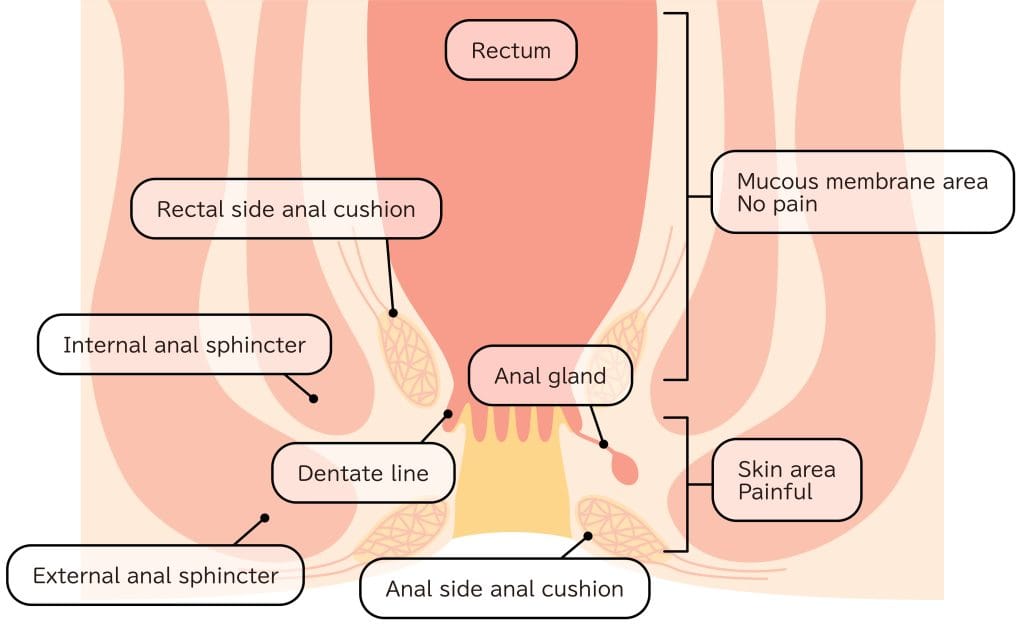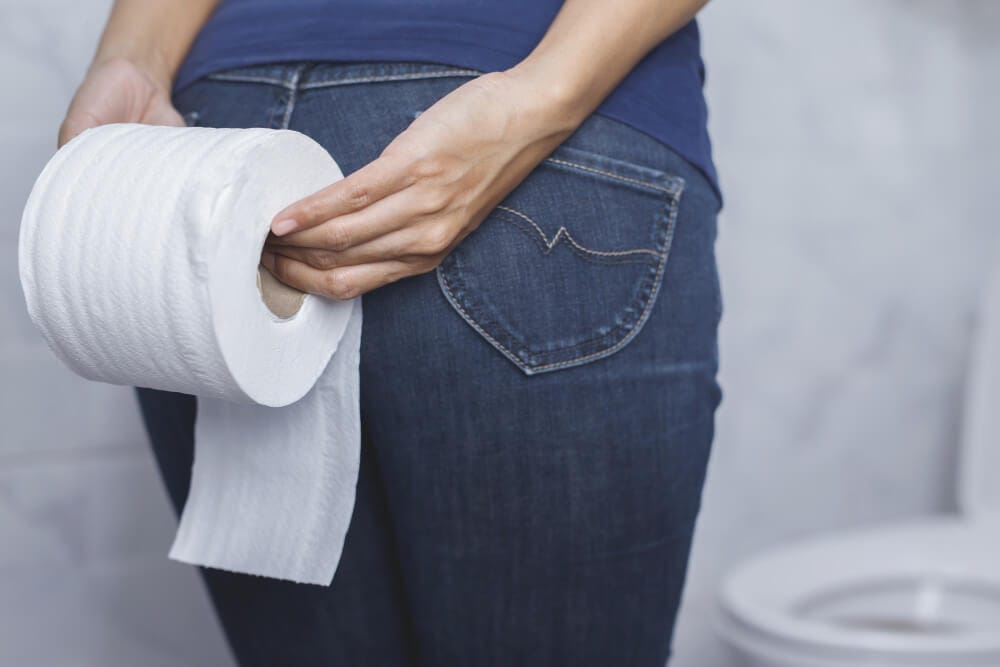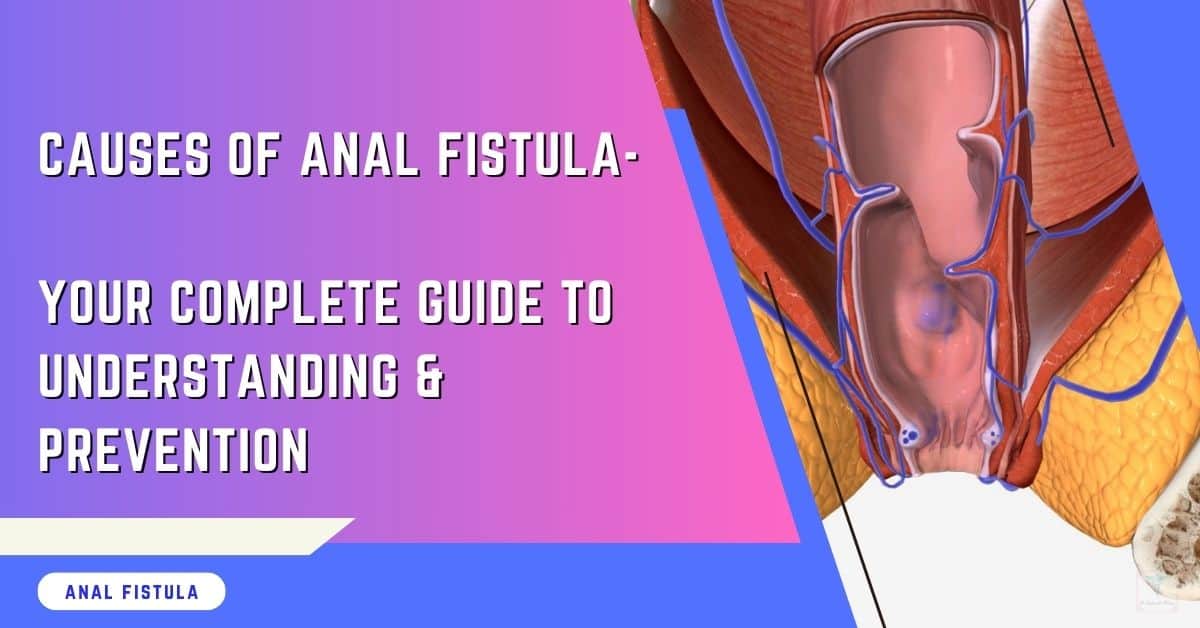If you or someone you know is navigating the complexities of an anal fistula, gaining a comprehensive understanding is crucial. However, understanding Anal Fistula can be a difficult.
This condition, though not widely discussed, impacts many people’s lives significantly. In this exploration, I’ll try to understand anal fistulas, their symptoms, and the available treatment options.
Armed with accurate information, you will be better positioned to discuss this health issue with healthcare professionals and advocate for the best care possible.
My aim is to demystify anal fistulas and provide you with the knowledge needed to tackle this health challenge confidently.
Understanding Anal Fistula: Key Points
- Anal fistulas, often resulting from an anorectal abscess and involving the external sphincter near the anus, are complex conditions requiring a good understanding of their symptoms, causes, and treatment options to manage effectively.
- Recognizing the symptoms early, such as pain, discomfort, and abnormal discharge near the anus, is crucial for timely medical intervention.
- Identifying the underlying causes, which can range from previous surgeries to conditions like Crohn’s disease, helps tailor the treatment approach.
- Treatment options vary from non-surgical methods for minor fistulas to surgical interventions for more complicated cases, emphasizing the importance of a personalized treatment plan.
- The recovery journey post-treatment may involve lifestyle adjustments and follow-up care to prevent recurrence and ensure healing.
- Understanding when to seek help is vital; experiencing persistent symptoms or complications post-treatment warrants immediate medical attention.

Understanding Anal Fistula
An anal fistula is essentially a narrow tunnel connecting the end of the bowel to the skin near the anus. Most often, it’s the aftermath of an anorectal abscess, which is an abscess in the anal area.
Less commonly, conditions like Crohn’s disease or complications from surgery can lead to fistulas.
Symptoms Overview
- Early SignsYou might notice skin irritation around your anus as an early sign. Initial discomfort or throbbing pain are common. An unusual discharge may also signal more severe symptoms ahead.
- Common SymptomsThe symptoms you might experience include smelly discharge and pain, along with swelling around the anal opening. Sometimes, you can see a hole in the skin near your anus. Difficulty controlling bowel movements occurs in some cases.
Causes
- Primary ReasonsInfections that lead to anorectal abscesses are the primary cause of anal fistulas. If these abscesses aren’t treated, they can develop into fistulas. Diseases like Crohn’s are less common causes but notable.
- Risk FactorsConditions increasing your risk include Crohn’s disease and diverticulitis. Previous surgery near your anal canal also poses a risk. Lifestyle factors might contribute to developing abscesses, leading to fistulas.
Recognizing Symptoms
Detailed Symptoms
Anal fistulas can cause significant discomfort. The pain is often intense and throbbing, becoming more noticeable during or after bowel movements. It’s not just a constant ache; the intensity can vary throughout the day.
Discharge from an anal fistula can be particularly distressing. It may be pus-like, with a yellowish color, and sometimes it carries a foul smell. This discharge can stain underwear, causing not only physical discomfort but also embarrassment.
Symptoms often change with bowel movements. Some of you might find relief after passing stools, while others could experience increased irritation or pain. This fluctuation makes managing daily activities challenging for many.
Seeking Medical Advice
When to Consult
If these symptoms persist or worsen, seeking medical help is crucial. Early consultation helps prevent potential complications that could arise from untreated fistulas.
Keep an eye on your symptoms, especially if they start escalating or if you notice new issues developing.
Specialist Referral
For those in need of further examination, seeing a specialist like a Proctologist is advisable. Your primary care physician can refer you to one. Specialists offer accurate diagnosis and detailed treatment plans tailored to your condition.
Their expertise ensures that you receive the best possible care for your anal fistula, minimizing risks and promoting faster recovery.
Identifying Causes

Main Causes
Most anal fistulas originate from anal abscesses. When infections occur near the anus, they can lead to the formation of these abscesses. It’s a painful condition that, if not treated properly, may evolve into a fistula.
Specific diseases like tuberculosis or HIV also play a significant role in causing anal fistulas. These conditions weaken the body’s immune response, making it more susceptible to infections that can lead to abscesses and eventually fistulas.
Contributing Factors
Lifestyle and hygiene factors significantly influence the development of abscesses and fistulas. Poor hygiene can lead to infections around the anus, escalating into more severe conditions.
Immune system disorders are critical contributing factors as well. They impair the body’s ability to fight off infections, increasing the risk of developing an anal abscess that could turn into a fistula.
Chronic gastrointestinal conditions, such as Crohn’s disease or ulcerative colitis, impact fistula formation too. These conditions cause inflammation in the digestive tract, which can extend to the anal area and contribute to the development of fistulas.
Treatment Options
Surgical Solutions
- Simple FistulasSimple fistulas have a single tract and lack significant complications. The typical treatment for these is surgical, involving opening up the tract. This procedure allows it to heal from the inside out. Patients with simple fistulas often see a favorable prognosis. Their recovery period is generally shorter and less complicated.
- Complex FistulasComplex fistulas involve multiple tracts, affect sphincter muscles, or recur after initial treatment. These cases present significant challenges due to their complexity. Treatment may require more advanced surgical techniques, such as flap procedures or the use of setons. The goal is to protect muscle function while effectively treating the fistula.
Non-Surgical Therapies
For some of you, non-surgical options might be viable. Antibiotics can help control infection associated with anal fistulas. Treatments like fibrin glue or collagen plugs offer less invasive alternatives to surgery.
They work by sealing the fistula tract. Lifestyle and dietary adjustments also play a crucial role in managing symptoms and preventing recurrence.
Surgical Intervention
Procedure Insights
When you and your doctor decide on surgical intervention for an anal fistula, understanding the procedures is crucial. Fistulotomy, a common surgery, involves cutting open the entire length of the fistula to flush out its contents.
Another method is seton placement, where a thread is placed through the fistula to allow it to drain over time. The primary goal of these surgeries is to open and drain the fistula, ensuring it heals properly from the inside out.
The complexity of your fistula greatly influences which procedure will be most effective. Simple fistulas often respond well to a straightforward fistulotomy.
However, more complex or deeper fistulas may require a different approach, like seton placement, to avoid damage to surrounding tissues.
Risks Involved
- Surgery ComplicationsEvery surgical treatment carries risks. For anal fistula surgery, potential complications include infection or recurrence of the fistula. There’s also a risk of damaging the anal sphincter muscles, which can lead to incontinence. Though rare, this complication underscores the importance of choosing an experienced surgeon.
- Post-Surgery RisksAfter surgery, following post-operative instructions meticulously minimizes risks. Signs of infection or complications include fever, excessive pain, or unusual discharge from the surgical site. It’s vital to attend all follow-up appointments to ensure proper healing and address any concerns promptly.
Recovery Journey
Post-Op Care
After surgery, proper wound care is crucial. You should gently clean the area after each bowel movement to prevent infection. Use warm water and pat dry with a soft cloth.
Pain management is also important. Your doctor may prescribe medications to help manage discomfort. Follow their instructions closely.
Adjust your diet to include more fiber. This helps ease bowel movements during recovery. Drink plenty of water as well.
Healing Process
Recovery Timeline
Recovery can take a few weeks to several months. The time varies based on the fistula’s complexity and your overall health. Regular follow-up care is essential to monitor healing progress. It helps in identifying any signs of recurrence early.
Factors like how well you follow post-op care instructions can influence recovery time too. Stay in close contact with your healthcare provider during this period.
Lifestyle Adjustments
To aid healing, make dietary changes that prevent constipation. Include foods rich in fiber and drink lots of water.
Regular exercise promotes overall health and aids recovery. Start with light activities and gradually increase intensity as advised by your healthcare provider.
Maintaining good hygiene is crucial for preventing future abscesses and fistulas. Clean the area regularly and thoroughly, especially after bowel movements.
Recognizing Potential Complications
If you notice increased pain, fever, or unusual discharge, these could be signs of complications from an anal fistula. It’s crucial to seek immediate medical attention if you suspect any complications.
Early detection and treatment can prevent the situation from worsening. Remember, your recovery journey doesn’t end after surgery; monitoring for these signs is key.
Complications may also include difficulty controlling bowel movements or infection spreading to other areas. If you experience any of these symptoms, contact your healthcare provider without delay.
Preventive Measures
To reduce the risk of developing anal abscesses and fistulas, maintaining good hygiene is essential. Clean the anal area gently but thoroughly after each bowel movement to prevent infection.
For individuals with risk factors such as a history of gastrointestinal disorders or those who have recently undergone surgery in the anal area, regular medical check-ups are advisable. These check-ups can catch potential issues early on.
A healthy diet rich in fiber can keep your bowel movements regular and reduce strain during defecation, lowering the risk of complications. Staying hydrated and engaging in regular physical activity also play significant roles in prevention.
When to Get Help

Emergency Symptoms
If you experience severe pain, high fever, or uncontrollable bleeding, these are signs that require immediate medical attention.
Recognizing these symptoms is crucial as they may indicate serious complications related to anal fistulas. It’s important not to ignore these warning signs. Seek emergency care promptly to prevent further health issues.
In cases where the discomfort becomes unbearable or if there’s significant bleeding, it’s vital to act fast. These conditions can escalate quickly, leading to more severe health problems if left untreated.
Regular Check-Ups
After undergoing treatment for an anal fistula, scheduling routine follow-up appointments is essential. These check-ups help monitor for any recurrence of the condition.
For individuals with chronic conditions that increase the risk of developing fistulas, regular visits to a healthcare provider become even more critical.
Discussing long-term management strategies with your healthcare provider can help manage the risk and ensure prompt treatment if needed again. They can offer guidance on how to minimize future complications and maintain your health.
Final Note From Dr. Rajarshi Mitra
Understanding anal fistula, its symptoms, causes, and the journey through treatment to recovery is crucial for anyone facing this condition.
You’ve learned about the importance of recognizing early signs, identifying underlying causes, exploring treatment options including surgical interventions, navigating the recovery process, and being aware of potential complications.
This knowledge empowers you to take informed actions towards your health. If you suspect an anal fistula, it’s essential to seek medical help promptly. Early intervention can significantly impact your treatment success and quality of life.
Remember, dealing with an anal fistula requires patience and adherence to medical advice. Your journey might include challenges, but understanding your condition and options prepares you for the road ahead. Don’t hesitate to reach out to healthcare professionals for help. Taking action today can lead to a healthier tomorrow.
Ask Dr. Rajarshi Mitra
What is an anal fistula?
An anal fistula is an abnormal tunnel connecting the anal canal to the skin near the anus, often resulting from infection.
How can I recognize symptoms of an anal fistula?
Symptoms include pain, discomfort around the anus, unusual discharge, and swelling. Fever may indicate infection.
What causes an anal fistula?
Anal fistulas typically result from an abscess or infection in the anal glands, which can spread to the skin.
What are the treatment options for an anal fistula?
Treatment varies but may include antibiotics for infection, and surgery to open and drain the fistula.
Is surgery always necessary for treating an anal fistula?
Yes, all cases require surgery and it is the most common treatment to effectively heal and prevent recurrence of an anal fistula.
What should I expect during recovery from anal fistula surgery?
Recovery involves managing pain, keeping the area clean, and possibly using stool softeners to ease bowel movements.
What are potential complications of untreated anal fistulas?
Untreated fistulas can lead to recurrent infections, abscesses, and difficulty controlling bowel movements.
When should I seek medical help for an anal fistula?
Seek immediate medical attention if you experience persistent pain, discharge, fever, or swelling around the anus.



















